Detailed introduction of the University of Alcalá:
Introduction and Overview
Location: Located in Alcalá de Henares, 30 kilometers from Madrid, the city is the hometown of Miguel Cervantes, a great writer in Spanish history.
Student and Faculty Size: More than 28,000 students, 2,100 faculty and 800 administrative and office service staff.
History and Founding Time
Founded in 1499 by Cardinal Cisnero. During the 16th and 17th centuries, it developed into an excellent academic research center. In 1836, the school moved to Madrid and became the predecessor of the current Complutense University of Madrid. In 1977, the University of Alcalá resumed teaching activities at the original site.
School Strength
Teaching Quality: As one of the oldest public universities in Europe, it has high teaching quality and a wide range of disciplines, covering humanities, social sciences, natural sciences, engineering and other fields. Its education quality is widely recognized both in Spain and internationally. It focuses on the combination of theory and practice, and cultivates students' critical thinking and practical ability through rich and diverse course settings and practical activities.
Faculty: It has 2,100 faculty and staff who have profound professional knowledge and rich teaching experience, and can provide professional guidance and support to students.
Scientific Research Strength: It has achieved fruitful results in scientific research, with more than 290 scientific research projects sponsored by various organizations, such as the European Union, various Spanish ministries, autonomous regions, municipal governments and enterprises. The school also has more than 1,600 scientific researchers and has transferred 26 patents, showing strong scientific research and innovation capabilities.
Nature of the institution
Public university.
Educational philosophy
Focus on scientific research development, promote teaching quality improvement through scientific research, cultivate students' comprehensive literacy and practical ability, emphasize cooperation with enterprises and institutions, closely integrate education with employment market needs, and at the same time be committed to international development, establish extensive cooperation with many well-known universities and research institutions around the world, and cultivate talents with international vision and competitiveness.
Key laboratories and disciplines
Key disciplines: Spanish literature and cultural studies, contemporary English and Spanish literature studies, strategic cooperation between Latin America and the European Union, management, pharmacy and pharmacology, electronic engineering and other majors have shown outstanding strength in academic reputation, teaching quality, scientific research strength and employment prospects, and linguistics majors have also performed relatively well.
Key laboratories: No specific key laboratories with particularly prominent names have been found in the school, but judging from its scientific research projects and discipline strength, the relevant majors should be equipped with relatively advanced scientific research facilities and experimental platforms.
Department Settings
The school has 40 departments and majors, covering multiple disciplines such as mechanical automation, architecture, animal biology, cell biology and genetics, plant biology, biochemistry and molecular biology, computer science, and business management.
Ranking
2021 QS World University Rankings 499th.
2025 QS World University Rankings ranked 621-630th in the world and received a five-star rating from the QS World University Rankings.
Expenses
Tuition fees: Tuition fees for undergraduate and master's programs vary depending on the major, generally around 2000-3000 euros/year.
Accommodation fee: 2000-2500 yuan/month for off-campus living; 2200-3300 yuan/month for dormitory living.
Campus environment
Campus distribution: There are Alcalá Campus, Literature Campus and Guadalajara Campus. Alcalá Campus is the main campus, the historical city center, mainly for liberal arts departments.
Teaching facilities: Many buildings on campus date back to the 16th and 17th centuries, carrying a strong historical heritage. At the same time, they are equipped with modern classrooms, laboratories, libraries, student activity centers and other complete teaching facilities. The ancient buildings and modern facilities coexist harmoniously, providing students with good learning conditions.
Cultural and artistic atmosphere: The city is rich in cultural atmosphere, and the campus often holds various cultural activities and academic lectures, providing students with a broad cultural exchange platform, so that students can feel the strong cultural and artistic atmosphere while learning professional knowledge, broaden their horizons and improve their comprehensive quality.
-
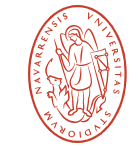
University of Navarra
-
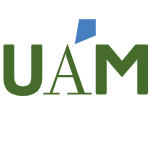
Autonomous University of Madrid
-

Polytechnic University of Catalonia
-

CEU University of San Pablo
-
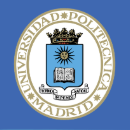
Technical University of Madrid
-

University of Lleida
-
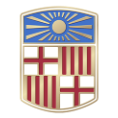
University of Barcelona
-

University of Oviedo
-

University of Valladolid
-
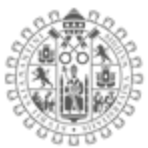
University of Salamanca
-

Mesoamerican University
-

Istmo University
-

Mariano Galvez University of Guatemala
-

Regional University of Guatemala
-

Galileo University
-

Francisco Marroquín University
-

Rafael Landívar University
-

University of the Valley of Guatemala
-

University of San Carlos of Guatemala
-

Technological Institute of Tlaxcala Plateau
-

Golfo University
-

Technological University of South Sonora
-

Technological University of Huejotzingo
-

Tizimín Institute of Technology
-

Chilpancingo Institute of Technology

